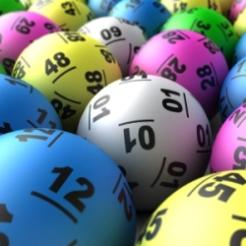The Department for Culture Media and Sport is to look at the role of society lotteries and consider whether to increase or decrease the regulations they face.
In written evidence to the Culture, Media and Sport Committee’s inquiry into society lotteries published today, the DCMS says it will be issuing a ‘call for evidence’ within the next few weeks to explore the issues involved with society lotteries and their regulation, before making any reforms.
The Committee launched its inquiry in July to look at the case for relaxing the regulatory requirements faced by society lotteries, such as the '80:20' rule, which states a minimum of 20 per cent of proceeds must be returned to good causes.
It came after the DCMS announced in December 2012 that it would hold a consultation on increasing the minimum proportion returned to good causes, which was later put on hold.
DCMS says in its evidence to the Committee's inquiry: “We will be exploring the role and position of society lotteries and taking evidence to inform whether we should consider increasing or decreasing the regulations under which they operate. The investigation and subsequent report by the select committee will form an important element of this evidence and will feed into any decisions that we ultimately take.”
The Department said it committed to the consultation after concerns were raised that society lotteries were in “an advantageous position” over the National Lottery because the National Lottery returns around 26 per cent to good causes and 12 per cent lottery duty.
But during pre-consultation engagement with the sector, it became clear “this complex issue was too narrowly focused” and there were unintended consequences such as reducing the overall amount raised for good causes by restricting the ability of society lotteries to operate, the DCMS said.
The Department said since the consultation announcement the National Lottery and society lotteries have continued to grow, showing no evidence that large-scale lotteries are impacting on the National Lottery.
It also highlighted the report by the Centre for Economics and Business Research, commissioned by the Institute of Fundraising and the Lotteries Council, which concluded that tightening regulatory controls could significantly reduce the amounts raised by society lotteries, while deregulation could increase the amount going to good causes.
‘The time has come to act’
The Lotteries Council submitted written evidence supported by the Hospice Lotteries Association, the IoF, RNIB, Macmillan Cancer Support, Scope and the Royal Voluntary Service.
It calls for an increase in ticket sales for a single draw from £4m to £10m, an increase in the annual income cap from £10m to £100m, and an increase in prize values from £25,000 to £100,000 and from 10 per cent of the proceeds to 50 per cent.
The membership bodies and charities also call for the 20 per cent minimum contribution to be aggregated over an extended period, such as three years, for newly created small lotteries to reduce the risks and barriers to entering the market.
“The time has come to act – the sector has been in limbo since the government announced its long-awaited consultation in December 2012 – and we urge the DCMS to positively use this consultation to relax current restrictions, thereby stimulating society lotteries and generating even more money for good causes,” the submission said.
The Alzheimer’s Society and Age UK have also made written submissions calling for regulatory requirements to be relaxed.
The Health Lottery said it supported the position taken by the Lotteries Council that relaxing regulations would enable society lotteries to maximise the money generated for good causes.
Comprising 51 society lotteries that operate under the brand of the Health Lottery, launched by media owner Richard Desmond in 2011, its submission to the Committee makes the case that it should not be treated differently to other society lotteries and does not pose any threat to the revenues of the National Lottery.
In its submission to the Committee, Camelot repeated its concerns about the threat it sees from Health Lottery, saying: “The precedent set by the Health Lottery, which has in all but name positioned itself as a national competitor to the National Lottery, is of particular concern and, if replicated, threatens to destabilise the ecosystem in which the lottery market successfully operates.”
The National Lottery operator said it supports considering averaging the 80/20 rule over a period of time, as well as the option to allow gift aid on lottery ticket purchases, which is proposed by the IoF.
Camelot calls for an increase in contributions to good causes in line with a lottery’s scale.
But it says it “fundamentally opposes” any increase in prize caps for society lotteries.
People's Postcode Lottery 'could raise over £130m annually'
Meanwhile, the People’s Postcode Lottery could contribute more than £130.2m a year to good causes if regulations governing revenue and prize sizes were relaxed.
In its submission to the inquiry, the PPL included summary findings from the report by the CEBR, called The Economic Impact of People’s Postcode Lottery, which will be published in full next month.
Last year, the PPL contributed £10.2m to good causes.
The researchers calculate that for each £1 of Postcode Trust funding, charities indicate they are able to raise an additional £1.70 from other funding sources.
The report concludes that, based on available evidence, the National Lottery should not be negatively affected by the deregulation of the society lottery sector that could bring about these increased contributions.








